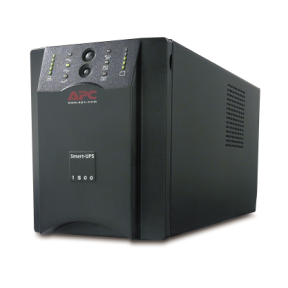So we’re using several types of UPS’s at our clients, and sometimes bump into generic USB UPS systems too. To monitor these we use a couple of methods that all have benefits and downsides. Let’s get started.

The APC UPS Drivers are already included on Microsoft Operating Systems. Once you have opened the Properties window of the device look for Update Driver. I just bought an APC Back-ups 650VA, there is no USB port (as far as the ASEAN version of this model is concerned) at the back of the UPS but there is an RJ45 LAN port. The APC UPS package comes with an RJ45-to-USB cable which you will then plug into any of the USB port/s of your Synology, the power cable (of your Synology) obviously goes into. APC: Back-UPS 1200BR (Microsol) solis: 2: Back-UPS BZ2200BI-BR (Microsol) Back-UPS Pro: apcsmart: 1: Matrix-UPS: Smart-UPS: Smart-UPS SMT/SMX/SURTD Microlink models with RJ45 socket - they.require. AP9620 SmartSlot expansion card and smart cable: Back-UPS Pro USB USB: usbhid-ups: 2: Back-UPS USB USB: Back-UPS RS USB USB: Back-UPS LS USB USB.
If a generic USB UPS is installed, Windows Server recognizes this as a Battery Unit. The status is sent to the server by using a generic Windows Driver called “Microsoft Compliant Control Method Battery” which is quite the mouthfull. The good thing is that with this driver we can use a couple of small PowerShell commands to find the exact status of the battery.


USB UPS systems
The script gets the battery status out of WMI, it shows if the machine is running on battery or not, and you can alert on this. We’ve set our systems up to make sure that when the battery status changes from anything but “Not using battery” it alerts, and possibly shuts down the machine.
Powerchute Personal Edition Windows 10
Apc Ups Linux Driver
Another thing to pay attention to is the Battery Status – Most APCs and Dell’s connected to USB even tell the OS if the battery is in a warning state or failed, you should alert on anything but “OK” for the status.
Apc Ups Driver Server 2012
We can’t really monitor network UPS systems with this, as they do not get their data in w32_battery, so we’ll have to use a couple of different solutions for this. I’ll try covering this in a future blog. As always, happy PowerShelling!
